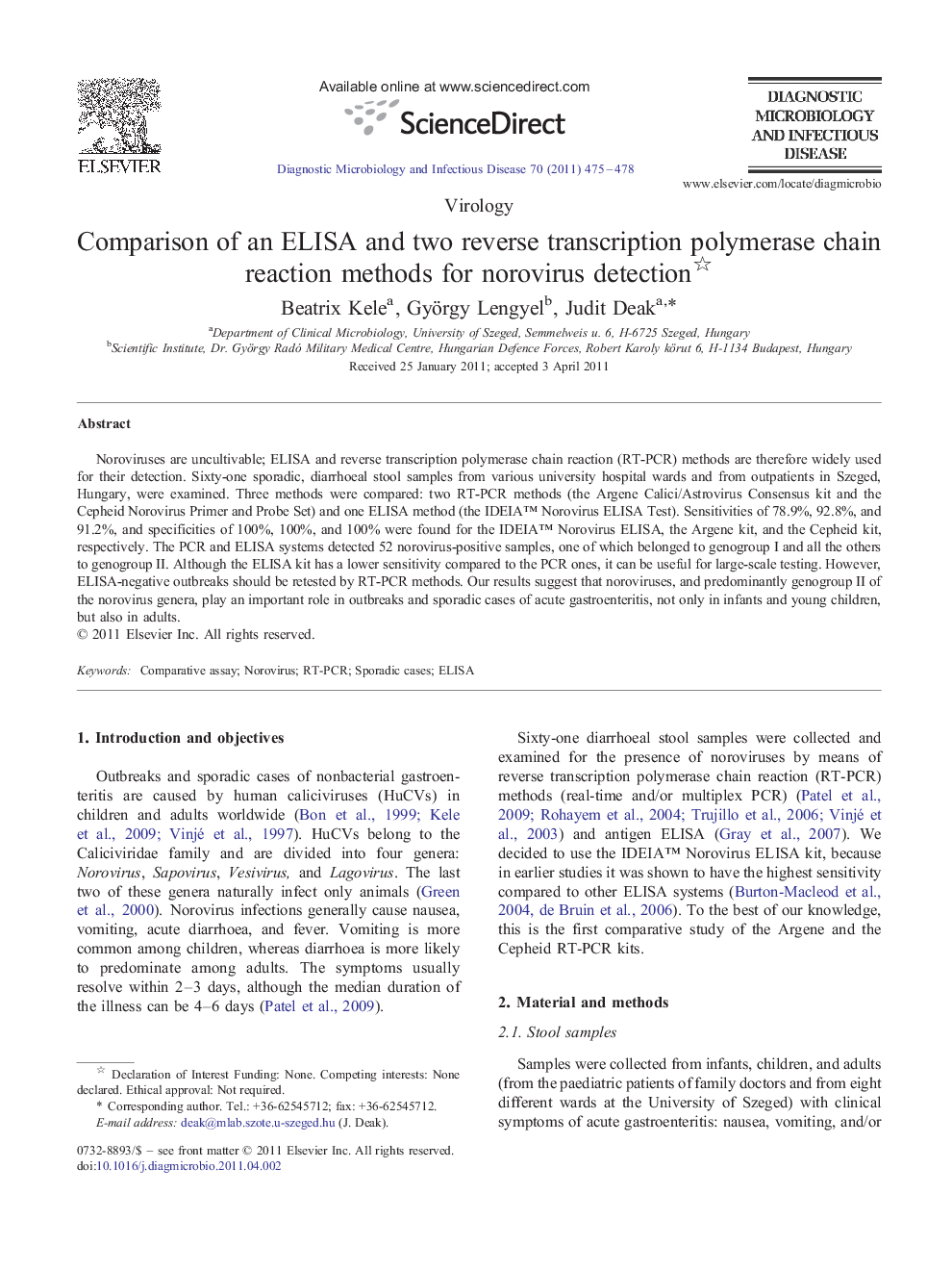| Article ID | Journal | Published Year | Pages | File Type |
|---|---|---|---|---|
| 6116389 | Diagnostic Microbiology and Infectious Disease | 2011 | 4 Pages |
Abstract
Noroviruses are uncultivable; ELISA and reverse transcription polymerase chain reaction (RT-PCR) methods are therefore widely used for their detection. Sixty-one sporadic, diarrhoeal stool samples from various university hospital wards and from outpatients in Szeged, Hungary, were examined. Three methods were compared: two RT-PCR methods (the Argene Calici/Astrovirus Consensus kit and the Cepheid Norovirus Primer and Probe Set) and one ELISA method (the IDEIA⢠Norovirus ELISA Test). Sensitivities of 78.9%, 92.8%, and 91.2%, and specificities of 100%, 100%, and 100% were found for the IDEIA⢠Norovirus ELISA, the Argene kit, and the Cepheid kit, respectively. The PCR and ELISA systems detected 52 norovirus-positive samples, one of which belonged to genogroup I and all the others to genogroup II. Although the ELISA kit has a lower sensitivity compared to the PCR ones, it can be useful for large-scale testing. However, ELISA-negative outbreaks should be retested by RT-PCR methods. Our results suggest that noroviruses, and predominantly genogroup II of the norovirus genera, play an important role in outbreaks and sporadic cases of acute gastroenteritis, not only in infants and young children, but also in adults.
Keywords
Related Topics
Life Sciences
Immunology and Microbiology
Applied Microbiology and Biotechnology
Authors
Beatrix Kele, György Lengyel, Judit Deak,
